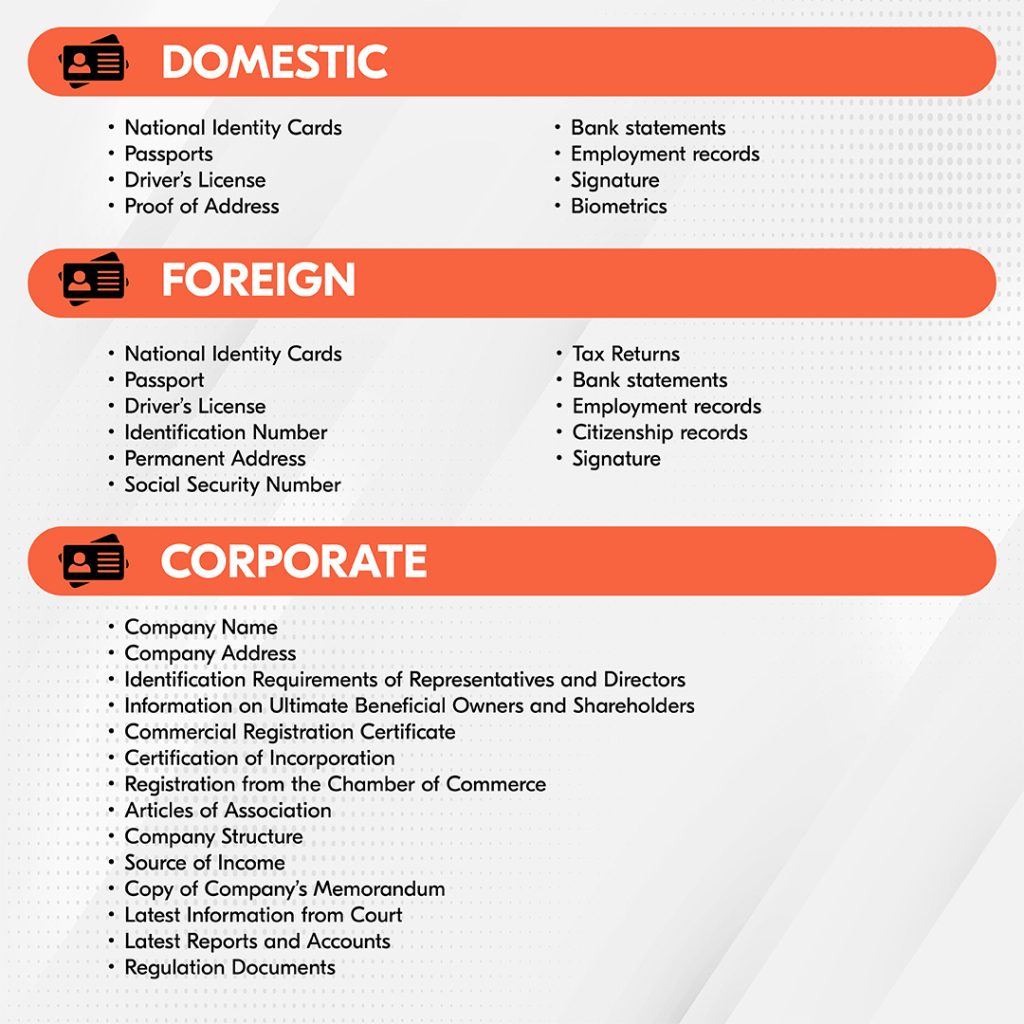KYC Compliance Checklist for EU Luxury Sector
DISCLAIMER: This post was last modified on 12 July 2024. Some information in this article may not be updated.
Money laundering in the EU Luxury sector
The culture of privacy and exclusivity in the European Union’s luxury sector makes the market vulnerable to abuse and exploitationmaking the market a hotspot for criminals to conduct illicit financial crimes.
In February of this year, authorities from Latvia, Lithuania, and Italy arrested a Lithuanian crime network that was laundering EUR 2 billion worth of assets through luxury estates and cars. The organised crime group was involved in tax evasion, fake bankruptcy and drug trafficking. In another report in April this year, authorities arrested 22 people from Slovakia, Austria, and Italy for laundering over EUR 600 billion worth of assets. Police seized luxury watches, jewellery and cars that were used in money laundering schemes.
As globalisation and technological advancements occur, money laundering schemes are also expected to rise. To protect EU citizens and financial systems, the EU Council and Parliament push for a stringent approach to battling money laundering in the region. The EU luxury sector has recently been subjected to strict KYC/AML policies, as required by the Sixth Anti-Money Laundering Directive (AMLD6), expanding the directive’s scope to include crypto assets service providers, football clubs and luxury goods traders as obliged entities.
KYC Checklist
The AMLD6 requires strict KYC/AML screening for customer onboarding and ongoing monitoring. Obliged entities are expected to implement strict customer identification, a risk-based approach and monitoring throughout the business relationship.
Below, we go over a standard KYC checklist for retailers and market actors in the EU luxury sector. Note that requirements may vary depending on certain laws within different jurisdictions.
Stage 1: Customer Identification
Customer identification and verification may be done through manual and digital methods. Manual methods may include submitting and verifying paperwork. Digital methods include analysing government data through advanced technology and automated identity verification for returning customers. Here are the standard requirements:

Stage 2: Customer Risk Assessment
Conducting risk assessment on customers will require obliged entities to consider the ‘types of customers, geographic areas, and particular products, services, transactions or delivery channels.’
Simplified Customer Due Diligence: Once an obliged entity identifies a customer as low risk, they may conduct simplified due diligence through simple customer identification.
Enhanced Due Diligence: High-risk clients are required to undergo enhanced due diligence. Obligated entities must acquire senior management approval before establishing a business relationship, examine previous large transactions and unusual patterns of transactions and, at minimum, conduct annual reviews and monitor business relationships.
Stage 3: Ongoing Monitoring
Obliged entities must conduct ongoing monitoring of customers to ensure that transactions, nature of business, risk profile, source of funds, documents and any customer information or data are consistent and up to date.
Sanctions Screening: Obliged entities must screen if customers appear on any watchlist or sanctions list across different jurisdictions.
AML Training for Staff: Obliged entities are also responsible for ensuring all staff are properly trained to identify and report money laundering schemes and to maintain high confidentiality when handling sensitive data.
Automation: Establishing automated systems to identify and verify data from both new and existing customers can also streamline the monitoring process for obliged entities.
Bolder’s KYC/AML Compliance Solutions for the EU’s luxury sector
KYC solutions are not a one-size-fits-all and can often be contingent on specific local obligations; hence, professional guidance may be needed to ensure your business stays compliant with regulatory requirements. Bolder Group has robust KYC solutions and AML services catering to various industries – including the EU luxury sector. Additionally, we offer AML services to aid in screening and training staff to better identify money laundering schemes.
You may contact our team to learn more about our KYC/AML solutions and services.
Disclaimer: Bolder Group does not provide financial, tax or legal advice and the information contained herein is meant for general information purposes only. We strongly recommend that before acting on any of the information contained herein, readers should consult with their professional advisers. The Bolder Group accepts no liability for any errors or omissions in the information, or the consequences resulting from any action taken by a reader based on the information provided herein.
Bolder Group refers to the global network of independent subsidiaries of Bolder Group Holding BV. Bolder Group Holding BV provides no client services. Such services are provided solely by the independent companies within the Bolder Group which are each legally distinct and separate entities and have no authority (actual, apparent, implied or otherwise) to obligate or bind Bolder Group Holding BV in any manner whatsoever. The operations of the Bolder Group are conducted independently and have no affiliation with third party financial, tax or legal advisory firms or corporations.
